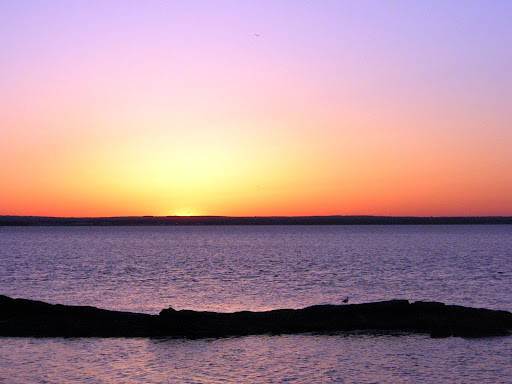States / Rhode Island
Rhode Island
Coastal Management
The focus is on managing coastal areas to increase resilience, with an emphasis on balancing environmental, economic, and human wellbeing. Mandated by the Coastal Zone Management Act, the two federal programs designed for this task are the National Coastal Zone Management Program and the National Estuarine Research Reserve System. Programs are administered, on the federal side, by NOAA’s Office for Coastal Management, in partnership with the coastal states.

State Programs
Coastal Zone Management
Rhode Island Coastal Management Program. Established in 1978, the program is administered by the Rhode Island Coastal Resources Management Council, a governor-appointed council comprising a professional staff of engineers and scientists and members of coastal communities, including state and local government officials and the public. The council serves as the adjudicatory arm of the agency and hears complex and difficult applications, as well as regulatory matters.
National Estuarine Research Reserves
Narragansett Bay National Estuarine Research Reserve. Designated in 1980 and protecting 4,332 acres, this reserve is located 12 miles north of Newport and 12 miles south of Providence, Rhode Island. The reserve is located on three islands in the geographic center of the Narragansett Bay: Prudence, Patience, and Hope. The islands contain diverse upland, aquatic, and estuarine habitats including coastal grassland, coastal shrubland, maritime forests, lowland streams, coastal marshes, cobble and rocky shores, and muddy bottoms. Both Patience and Hope islands are uninhabited; approximately 60 percent of Prudence Island is included in the reserve's boundaries. The reserve is surrounded by a small island community of summer and year-round residents. (See handout)
Impact Stories
Stories that showcase the recent work of this state's coastal management efforts.
- Strategic Land Conservation Along Winnapaug Pond
- Restoring Post-Industrial Coastal Habitat in Portsmouth, Rhode Island
- Conservation Expands Habitat and Public Access along Rhode Island’s Winnapaug Pond
- Designing Providence Riverwalk to Improve Resilience and Habitat of Woonasquatucket River, Rhode Island
- Engaging Citizens in Seekonk River Climate Resilience and Habitat Restoration Planning
- Growing Regional Resilience Coordination on Aquidneck Island
- Northeast States Collaborate on Ocean Mapping Priorities, Garnering National Attention
- Improving Coastal Wetland Resilience within the Narragansett Bay National Estuarine Research Reserve
- NOAA Cheers Citizen Scientists
Additional Resources
*Fast Fact Sources:
People: American Community Survey Five-Year Estimates
Beaches and Estuaries: Shoreline Mileage of the United States
Employment and Economy:
Marine Economy for the Coastal U.S. States
Marine Economy for the U.S. Territories